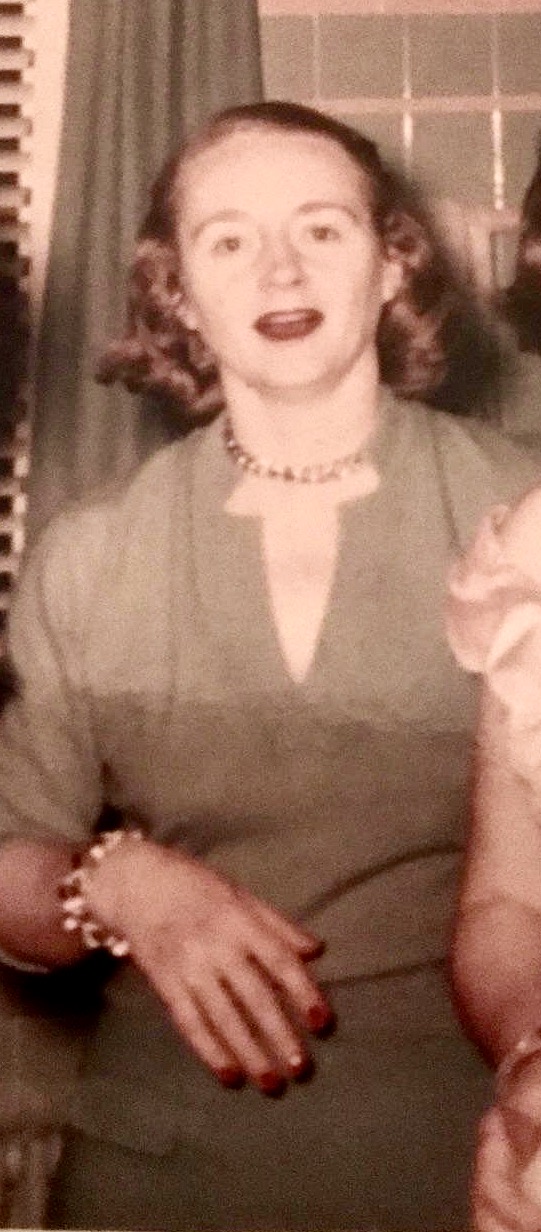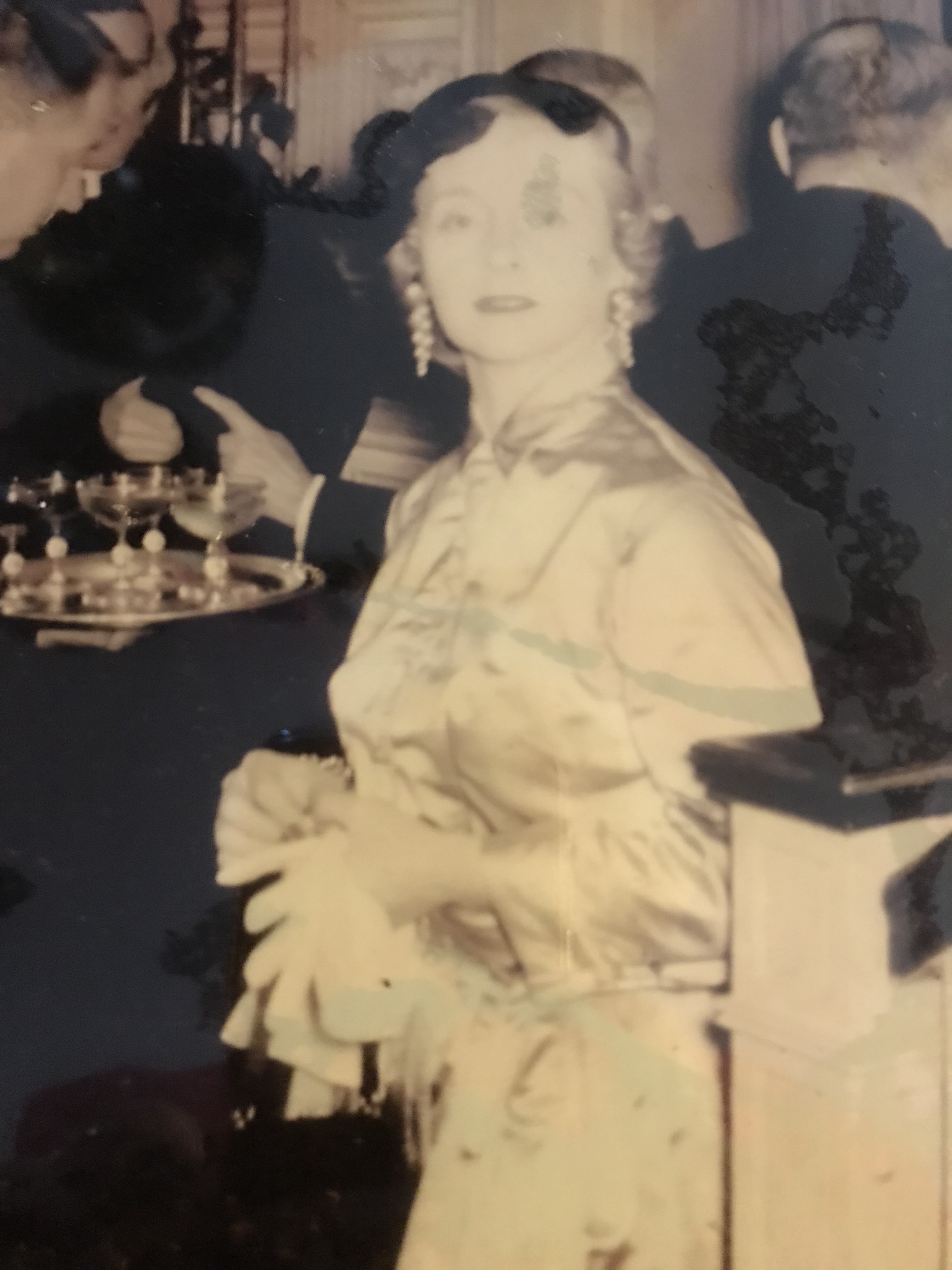Agnes smoked Marlboros. I can’t separate the ubiquitous red and white box from any memory of my mother. Her hands were never far from that flip-top pack. Like shrimp between two chopsticks, a cigarette dangling casually between the joints of two fingers is a practiced dexterity, one she learned long before I was born.
The broad flatback of her hands extending from wide wrists guided her muscled fingers. They looked like they worked hard and long. But they didn’t. Her young hands held rackets, bridles, hair brushes and probably cigarettes. Her maternal hands chopped, sliced and scrubbed until motherhood bored her.
Freckles splattered over raised veins tunnelling through the back of her hands. When the freckles blended together into “liver spots”, I was ashamed, embarassed. Later on, those liver spots scared me, until I learned prolonged beach time was the cause, not alcohol or tobacco-related diseases.
To paint her nails, Agnes would sit in her arm chair next to the mahogany table, a cold beer on a coaster and a cigarette in a flowery ceramic ashtray. She never smudged them, never blotched her cuticles, never spilled the polish, never needed to mop up after herself. She’d unscrew the top of Revlon’s Fire and Ice and pull out the dark-bristled brush coated in toxic red lacquer. With one hand flattened on the table, and the other one holding the grooved white plastic top, she’d drag the brush along the lip of the bottle to get the exact amount of polish. Pulling the brush from the bottom of the nail to the top in perfect form, nail after nail, she’d quietly finish the job, then blow on the tips of her fingers to dry them. She was never hurried, but finished before the cigarette was burned to the halfway mark. Lifting the cigarette to her lips without smudging her half-dried nails, she’d take a long rewarding drag.
At the mirror, she’d further glamorize her ensemble with matching lipstick. Gripping a short, thin-handled lipstick brush in her right hand, she’d cradle the unopened lipstick in her left, slide the top up with her left fingers, and let the top drop into the crook where the palm meets the thumb. Holding both parts steady, she’d flick the curved tapered bristles of the brush back and forth on the creamy substance with her right fingers. She’d outline the edges of her top and bottom lips, then brush the bare flesh inside the lip lines with vertical strokes. After blotting her freshly-colored lips with a folded Kleenex, she’d lift a lit Marlboro from the ashtray and gently mouth the filter tip.
In the 1960s Philip Morris secretly started using chemicals in Marlboros to free base the nicotine and increase its addictiveness. Smokers said the cigarettes calmed their nerves. By the 1970s Marlboros were the best-selling cigarette in the world.
My mother carried a small leather purse until the day she died. The only contents: lipsticks and Marlboros.

 history. Her pastimes, smoking and drinking, fit nicely into an imaginative destiny all her own. She believed she was meant to smoke, meant to drink, that they were a sign of the times and not to be missed because of some pollyannaish medical or social admonition about motherhood. Nothing would have stood in the way of her scotch, beer and Marlboros. She was destined to have them.
history. Her pastimes, smoking and drinking, fit nicely into an imaginative destiny all her own. She believed she was meant to smoke, meant to drink, that they were a sign of the times and not to be missed because of some pollyannaish medical or social admonition about motherhood. Nothing would have stood in the way of her scotch, beer and Marlboros. She was destined to have them. They all called my mother cool behind her back not because she dressed in black turtlenecks like a degenerate beatnik but because with her acid tongue and casual elegance she let them drink beer in her living room and laughed at all their jokes.
They all called my mother cool behind her back not because she dressed in black turtlenecks like a degenerate beatnik but because with her acid tongue and casual elegance she let them drink beer in her living room and laughed at all their jokes.